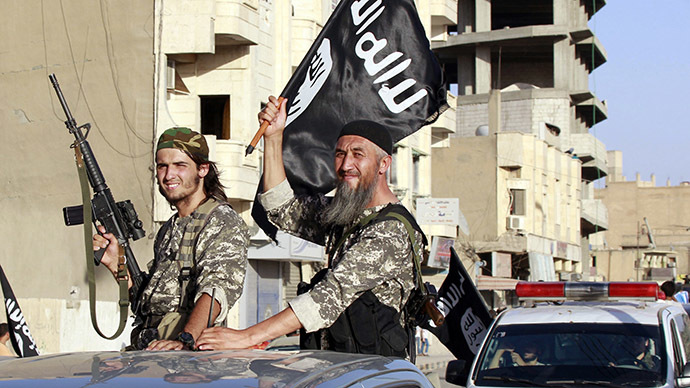Tackling terrorism requires genuinely collective approach

The so-called Islamic State (IS, formerly ISIS/ISIL) is advancing in Iraq and Syria. Its groups are settling in some regions of Libya; there are problems in Lebanon; and there is even evidence of an ISIS presence in Afghanistan.
In parallel, other terrorist groups are stepping up their actions, including al-Qaeda on the Arabian Peninsula.
Meanwhile, the US-led coalition continues delivering air strikes, but it seems like these actions have not yet had an impact on IS’ ability to further expand its cross-border “caliphate”.
In the context of the fight against IS, Western governments continue saying that they don’t regard the Syrian regime as a legitimate partner. But it was only a year ago that the Syrian government was viewed as an absolutely legitimate partner in the efforts to remove and liquidate chemical weapons. Surely, terrorism is a no less a serious threat than chemical weapons. So, what is a bigger threat: the personality of the Syrian president, or IS and the like?
Instead, our Western partners believe that aiding moderate opposition groups will help counteract the Islamic State, Jabhat al-Nusra and other terrorist organizations. As if there hasn’t been any recent experience showing that the majority of the so-called moderate oppositionists, who receive assistance in the form of weapons, funds and foreign instructors, are eventually “bought by the highest bidder” or defect to terrorists for ideological considerations.
At the same time, everyone understands and publicly admits that just airstrikes are not going to deliver on the task. There has to be another approach if we want to defeat terrorism. Russia has consistently been advocating that this will only be possible by uniting efforts of the international community on the basis of international law and in strict compliance with UNSC resolutions 2170, 2178 and 2199. We must not fight terrorism by focusing only on one country or another, disregarding what is happening in a nearby territory, but on the basis of a comprehensive analysis of the situation.
The international community needs to elaborate a common concept that will not only address Syria or Iraq, but a wider region that is facing the threat of IS expansion and entrenchment. It should be remembered that many other terrorist organizations have pledged loyalty to IS and have announced the territories they control as part of the “caliphate”. These groups are expanding the sphere of their interests to Sub-Saharan Africa.
Russia has proposed to analyze these risks and challenges and formulate a streamlined international stance under the auspices of the UN Security Council, so as to prevent a repetition of the Libyan scenario, when this country was bombed in order to initiate a government change, in violation of the corresponding UN Security Council resolution and contrary to its embargo on arming the opposition. We should identify a common enemy, rather than change one’s attitude to governments depending on the current political situation.
The statements, views and opinions expressed in this column are solely those of the author and do not necessarily represent those of RT.
The statements, views and opinions expressed in this column are solely those of the author and do not necessarily represent those of RT.













